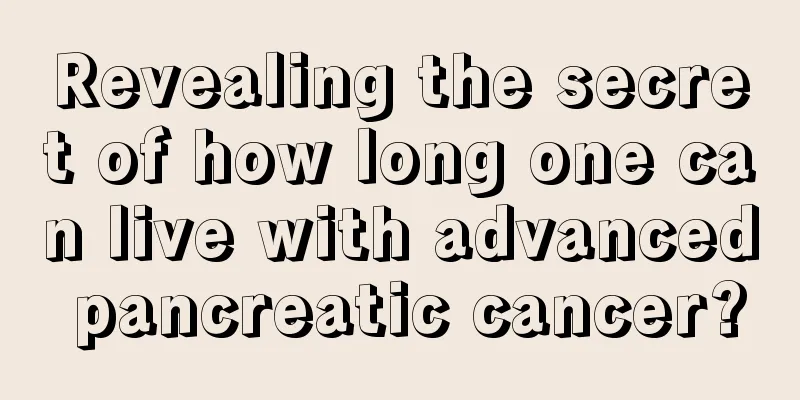Can pituitary tumors be completely cured?

|
Pituitary tumors are common intracranial tumors that occur in the anterior pituitary gland. Most of them are benign, but they have a great impact on the normal endocrine function of the human body. Once the disease occurs, it will induce the appearance of various endocrine symptoms. Therefore, patients need to pay more attention to it, seek early treatment, and remove the future troubles. The treatment methods for pituitary tumors mainly include drug therapy and surgical treatment, which should be selected according to the patient's condition. Can pituitary tumors be completely cured? Drug treatment has been a rapidly developing field in recent years, especially for hormone-secreting tumors, especially prolactinomas. Now, with the popularity of bromocriptine, the price of drugs has dropped, and the side effects are getting fewer and fewer, 70% to 80% of our prolactinomas can now be treated with drugs, and even lifelong drugs can be used for treatment. For many large prolactinomas, giant prolactinomas, patients who are not suitable for surgery can also be treated with drugs first. Most non-functional pituitary microadenomas do not choose to be treated, even if there is a tumor, but for non-functional macroadenomas, surgical treatment is the first choice. In addition, there are some drug treatments. Pituitary adenomas may also be accompanied by some complications. The patients with acromegaly mentioned just now may also be accompanied by heart disease or even heart failure. Can pituitary tumors be completely cured? The specific methods of pituitary tumor surgery are generally divided into two categories: craniotomy and transsphenoidal approach. Transsphenoidal surgery is to use a non-craniotomy method to directly reach the pituitary tumor from the nasal cavity or under the lips through an anatomical structure called the "sphenoid sinus" below the pituitary gland. Compared with craniotomy, it has the advantages of direct tumor exposure, no need to shave the hair to open the skull (cover), no change in the craniofacial appearance, less trauma and risk, good efficacy, and high cure rate. It is currently the preferred procedure used by most experts. For the treatment of pituitary tumors, being able to perform transsphenoidal approach surgery is only the first step. Due to the particularity and complexity of pituitary tumors, there are many related professional issues involved. Therefore, choosing a large medical unit with a good reputation and a doctor who has specialized in pituitary tumors for treatment can ensure the best possible treatment effect. Can pituitary tumors be completely cured? Warm reminder: Any pituitary tumor can cause headaches, ranging from mild to severe, and the degree of pain is not proportional to the size of the tumor. However, because pituitary tumors grow very slowly in the early stages, patients often seek medical attention only after the tumor has grown larger or become more serious. Sometimes, pituitary tumors accompany patients for many years without being discovered. Basically, only a few patients will experience symptoms of sudden severe headaches. Patients need to pay special attention to this. Pituitary tumors are common intracranial tumors that occur in the anterior pituitary gland. Most of them are benign, but they have a great impact on the normal endocrine function of the human body. Once they are sick, they will induce the appearance of various endocrine symptoms. Many patients are worried and afraid. Patients should pay more attention to it, seek early treatment, and eliminate future troubles. The main treatments for pituitary tumors are drug therapy and surgical treatment, and the specific treatment should be selected according to the patient's condition. Can pituitary tumors be completely cured? Drug treatment has been a rapidly developing field in recent years, especially for hormone-secreting tumors, especially prolactinomas. Now, with the popularity of bromocriptine, the price of the drug has dropped, and the side effects are getting fewer and fewer, 70% to 80% of our prolactinomas can now be treated with drugs, and even with lifelong drug treatment. For many large prolactinomas, huge prolactinomas, patients who are not suitable for surgery can also be treated with drugs first. Most non-functioning pituitary microadenomas are not treated, even if there is a tumor. However, for non-functioning macroadenomas, surgical treatment is the first choice. There are also some drug treatments. Pituitary adenomas may also be accompanied by some complications. The patients with acromegaly mentioned earlier may also have heart disease or even heart failure. Can pituitary tumors be completely cured? The specific methods of pituitary tumor surgery are generally divided into two categories: craniotomy and transsphenoidal approach. Transsphenoidal surgery is to use a non-craniotomy method to directly reach the pituitary tumor from the nasal cavity or under the lips through an anatomical structure called the "sphenoid sinus" below the pituitary gland. Compared with craniotomy, it has the advantages of direct tumor exposure, no need to shave the hair to open the skull (cover), no change in the craniofacial appearance, less trauma and risk, good efficacy, and high cure rate. It is currently the preferred procedure used by most experts. For the treatment of pituitary tumors, being able to perform transsphenoidal surgery is only the first step. Due to the particularity and complexity of pituitary tumors, there are many related professional issues involved. Therefore, choosing a large medical unit with a good reputation and a doctor who has specialized in pituitary tumors for treatment can ensure the best possible treatment effect. Tips: Any pituitary tumor can cause headaches, ranging from mild to severe, and the degree of pain is not proportional to the size of the tumor. However, because pituitary tumors grow very slowly in the early stages, patients often seek medical attention only after the tumors become larger or more serious. Sometimes pituitary tumors accompany patients for many years without being discovered. Basically, only a few patients will experience sudden and severe headaches. Patients need to pay special attention to this. |
<<: Lecture on Thyroid Cancer Prevention and Treatment
>>: Experience in nursing care during thyroid cancer surgery
Recommend
What is the difference between dry glue and hair spray
If you want to make yourself look energetic, you ...
Why do I feel anxious before meals?
For people with weak constitutions, dizziness, pa...
What are the causes of breast cancer
There are many causes of breast cancer, such as m...
What is the principle of Lingzhi in treating insomnia
Ganoderma lucidum is a relatively precious Chines...
First aid tips for traffic accidents
Once a traffic accident occurs, it means that man...
Are negative ion pads good for gynecological inflammation?
Women often have to use sanitary pads when they h...
What should you pay attention to during glaucoma laser surgery
Glaucoma is a relatively common eye disease. If n...
What to do if you have levator scapulae strain?
The levator scapulae is a muscle located in the n...
The difference between king salmon and salmon
As you can tell from the name of the king salmon,...
What are the best ways to get rid of acne and acne scars?
Acne is a very common thing. Acne is also a very ...
4What flowers help you sleep
Speaking of flowers, many people like them, espec...
Common warts on fingers
Common warts are a relatively common disease and ...
Rinse your mouth after tooth extraction
Many people rinse their mouths frequently after h...
Can silver remove moisture?
Dampness can harm human health, so the body must ...
Introduction to primary liver cancer
Primary liver cancer is a tumor that occurs in th...









